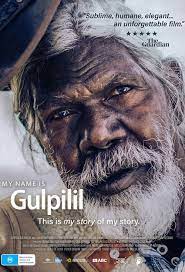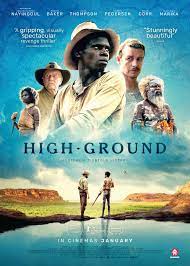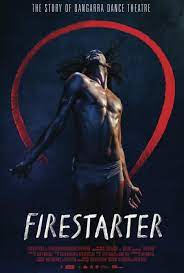Australian Catholics/ Jesuit Communications Annual Film Award

This award to an Australian film was instituted in 1979 by OCIC (International Catholic Organization for Cinema) Australia. Until 2020, it was awarded by the Bishops Conference Office for Film and Broadcasting. In August 2020, the Bishops closed this office. The reviews continue under the auspices of Jesuit Communications in the Australian Catholics website.
The 2021 award goes to Nitram.
NITRAM
This Australian film is based on the events leading up to the 1996 Port Arthur massacre. It recounts how Martin (“Nitram” spelt backwards) increasingly became a troubled and isolated young man, who gunned down and killed 35 people at Port Arthur in Tasmania.
The film is a dramatic adaptation of tragic events. It is not a particularly violent or sensational film, and the movie never refers to the killer’s full name. It is respectful of the dignity of the victims, and does not show the details of the massacre itself, but chooses instead to concentrate on the isolation, reclusiveness, and growing pathology of Martin as his anger and frustration explode to a tragic end. The film masterly builds tension as the tragedy of the impending massacre looms large. Appealing to Martin’s bullied and friendless history, it offers an insightful understanding of his odd behaviour, while not giving any endorsement of his criminal actions, and it reveals the gravity of his mental illness, without dwelling on horrific events. (Peter Sheehan)
We note that 2021 saw significant films with Indigenous Australian themes.

My Name is Gulpilil (Molly Reynolds) – honouring the 50 year career of actor and dancer David Gulpilil (1953-2021), clips from his wide range of films, but his taking an opportunity to reflect on his life and terminal cancer.

High Ground (director, Stephen Johnson). The Northern Territory in the 1920s, clashes between police and tribal aborigines, reflecting the dangers, confrontations and culture conflicts.

The Furnace (director, Roderick MacKay). A 1890s story of the Afghan camel drivers in Northern Australia, the action and place of the aborigines, Chinese miners, white settlers.

Firestarter (directors, Wayne Blair, Nel Minchin). The story of Bangarra Dance Theatre through the eyes of their long standing and charismatic artistic director, Stephen Page. It is a tale of pride, heartbreak, adversity and empowerment, with the strength of Indigenous dance at its centre.(Peter Malone MSC)